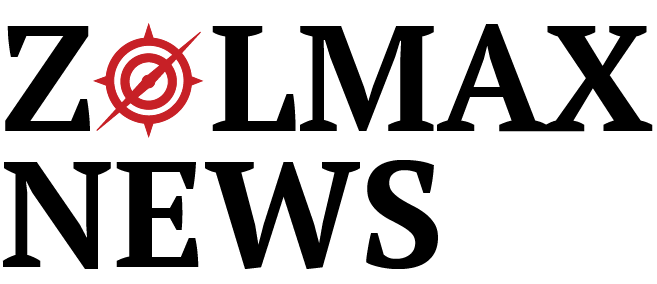John Marshall Bancorp (NASDAQ:JMSB – Get Free Report) and Origin Bancorp (NASDAQ:OBNK – Get Free Report) are both small-cap finance companies, but which is the better business? We will compare the two businesses based on the strength of their analyst recommendations, profitability, valuation, institutional ownership, earnings, risk and dividends.
Risk and Volatility
John Marshall Bancorp has a beta of 0.61, indicating that its stock price is 39% less volatile than the S&P 500. Comparatively, Origin Bancorp has a beta of 0.89, indicating that its stock price is 11% less volatile than the S&P 500.
Insider and Institutional Ownership
39.1% of John Marshall Bancorp shares are held by institutional investors. Comparatively, 47.2% of Origin Bancorp shares are held by institutional investors. 12.7% of John Marshall Bancorp shares are held by insiders. Comparatively, 6.2% of Origin Bancorp shares are held by insiders. Strong institutional ownership is an indication that hedge funds, large money managers and endowments believe a company is poised for long-term growth.
Dividends
Analyst Ratings
This is a breakdown of recent ratings and recommmendations for John Marshall Bancorp and Origin Bancorp, as provided by MarketBeat.
| Sell Ratings | Hold Ratings | Buy Ratings | Strong Buy Ratings | Rating Score | |
| John Marshall Bancorp | 0 | 0 | 0 | 0 | N/A |
| Origin Bancorp | 0 | 0 | 0 | 0 | N/A |
Profitability
This table compares John Marshall Bancorp and Origin Bancorp’s net margins, return on equity and return on assets.
| Net Margins | Return on Equity | Return on Assets | |
| John Marshall Bancorp | 2.70% | 7.43% | 0.75% |
| Origin Bancorp | 20.47% | 10.45% | 0.97% |
Valuation & Earnings
This table compares John Marshall Bancorp and Origin Bancorp”s top-line revenue, earnings per share (EPS) and valuation.
| Gross Revenue | Price/Sales Ratio | Net Income | Earnings Per Share | Price/Earnings Ratio | |
| John Marshall Bancorp | $33.01 million | 9.09 | $5.16 million | $0.22 | 95.91 |
| Origin Bancorp | $347.14 million | 2.54 | $87.71 million | $3.21 | 8.91 |
Origin Bancorp has higher revenue and earnings than John Marshall Bancorp. Origin Bancorp is trading at a lower price-to-earnings ratio than John Marshall Bancorp, indicating that it is currently the more affordable of the two stocks.
Summary
Origin Bancorp beats John Marshall Bancorp on 11 of the 14 factors compared between the two stocks.
About John Marshall Bancorp
 John Marshall Bancorp, Inc. operates as the bank holding company for John Marshall Bank that provides banking products and financial services. The company accepts checking, demand, NOW, savings, and money market accounts, as well as certificates of deposit. It offers residential and commercial construction and development loans, commercial term, mortgage, commercial real estate, industrial loans, and other commercial lines of credit; debit and credit cards; and treasury and cash management, investment, business and personal insurance, remote deposit capture, deposit sweep and online and mobile banking services. The company serves small to medium-sized businesses, their owners and employees, professional corporations, non-profits, and individuals. The company was founded in 2005 and is headquartered in Reston, Virginia.
John Marshall Bancorp, Inc. operates as the bank holding company for John Marshall Bank that provides banking products and financial services. The company accepts checking, demand, NOW, savings, and money market accounts, as well as certificates of deposit. It offers residential and commercial construction and development loans, commercial term, mortgage, commercial real estate, industrial loans, and other commercial lines of credit; debit and credit cards; and treasury and cash management, investment, business and personal insurance, remote deposit capture, deposit sweep and online and mobile banking services. The company serves small to medium-sized businesses, their owners and employees, professional corporations, non-profits, and individuals. The company was founded in 2005 and is headquartered in Reston, Virginia.
About Origin Bancorp
 Origin Bancorp, Inc. is a bank holding company, which engages in the provision of financial services to small and medium-sized businesses, municipalities, high net worth individuals, and retail clients. The firm’s products and services include lending, deposits, mortgage banking, and insurance. It also offers other banking services such as Internet banking and voice response information, mobile applications, cash management, overdraft protection, direct deposit, safe deposit boxes, U.S. savings bonds, and automatic account transfers. The company was founded in 1991 and is headquartered in Ruston, LA.
Origin Bancorp, Inc. is a bank holding company, which engages in the provision of financial services to small and medium-sized businesses, municipalities, high net worth individuals, and retail clients. The firm’s products and services include lending, deposits, mortgage banking, and insurance. It also offers other banking services such as Internet banking and voice response information, mobile applications, cash management, overdraft protection, direct deposit, safe deposit boxes, U.S. savings bonds, and automatic account transfers. The company was founded in 1991 and is headquartered in Ruston, LA.
Receive News & Ratings for John Marshall Bancorp Daily - Enter your email address below to receive a concise daily summary of the latest news and analysts' ratings for John Marshall Bancorp and related companies with MarketBeat.com's FREE daily email newsletter.
